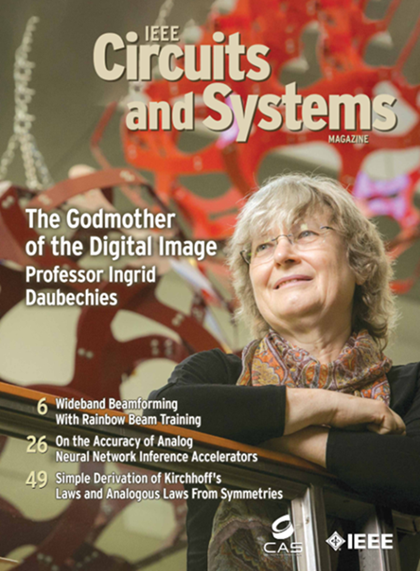Modeling and Simulation Challenges and Solutions in Cooling Systems for Nanoscale Integrated Circuits[Feature]
IF 5.6
2区 工程技术
Q1 ENGINEERING, ELECTRICAL & ELECTRONIC
引用次数: 0
Abstract
The power density in modern Integrated Circuits (ICs) is tremendous. For example, Multi-Processor Systems-on-Chip (MPSoCs) nowadays undergo temperature swings of 40 degrees in 100 milliseconds or less, with rapidly emerging and vanishing sub-millimeter hot spots. As such, not only a simulation-based cooling assessment is vital, but one has to simulate the on-chip thermal phenomena jointly with the heat dissipation system - historically, a challenge. In recent years, however, the idea of coupling traditional 3D chip simulators with heat dissipation models written in Equation-Based Modeling (EBM) languages has proven to be a game changer. EBM languages allow one to compose a model by assembling components described in terms of Differential and Algebraic Equations (DAE) and have the simulation code generated automatically. In this article, we take a tutorial viewpoint on the matter just sketched, to put the reader in the position of exploiting the above technology. We also present the first nucleus of a model library for cooling systems, that we release as free software for the scientific and engineering community.纳米级集成电路冷却系统的建模和仿真挑战与解决方案[Feature]
现代集成电路的功率密度是巨大的。例如,现在的多处理器片上系统(mpsoc)在100毫秒或更短的时间内经历40度的温度波动,亚毫米热点迅速出现和消失。因此,不仅基于模拟的冷却评估是至关重要的,而且必须与散热系统一起模拟芯片上的热现象-这在历史上是一个挑战。然而,近年来,将传统的3D芯片模拟器与用基于方程的建模(EBM)语言编写的散热模型相结合的想法已被证明是一个改变游戏规则的想法。EBM语言允许人们通过组装用微分和代数方程(DAE)描述的组件来组成模型,并自动生成仿真代码。在本文中,我们对刚刚概述的问题采取教程的观点,使读者能够利用上述技术。我们还提出了冷却系统模型库的第一个核心,我们将其作为科学和工程社区的免费软件发布。
本文章由计算机程序翻译,如有差异,请以英文原文为准。
求助全文
约1分钟内获得全文
求助全文
来源期刊

IEEE Circuits and Systems Magazine
工程技术-工程:电子与电气
CiteScore
9.30
自引率
1.40%
发文量
34
审稿时长
>12 weeks
期刊介绍:
The IEEE Circuits and Systems Magazine covers the subject areas represented by the Society's transactions, including: analog, passive, switch capacitor, and digital filters; electronic circuits, networks, graph theory, and RF communication circuits; system theory; discrete, IC, and VLSI circuit design; multidimensional circuits and systems; large-scale systems and power networks; nonlinear circuits and systems, wavelets, filter banks, and applications; neural networks; and signal processing. Content also covers the areas represented by the Society technical committees: analog signal processing, cellular neural networks and array computing, circuits and systems for communications, computer-aided network design, digital signal processing, multimedia systems and applications, neural systems and applications, nonlinear circuits and systems, power systems and power electronics and circuits, sensors and micromaching, visual signal processing and communication, and VLSI systems and applications. Lastly, the magazine covers the interests represented by the widespread conference activity of the IEEE Circuits and Systems Society. In addition to the technical articles, the magazine also covers Society administrative activities, as for instance the meetings of the Board of Governors, Society People, as for instance the stories of award winners-fellows, medalists, and so forth, and Places reached by the Society, including readable reports from the Society's conferences around the world.
 求助内容:
求助内容: 应助结果提醒方式:
应助结果提醒方式:


